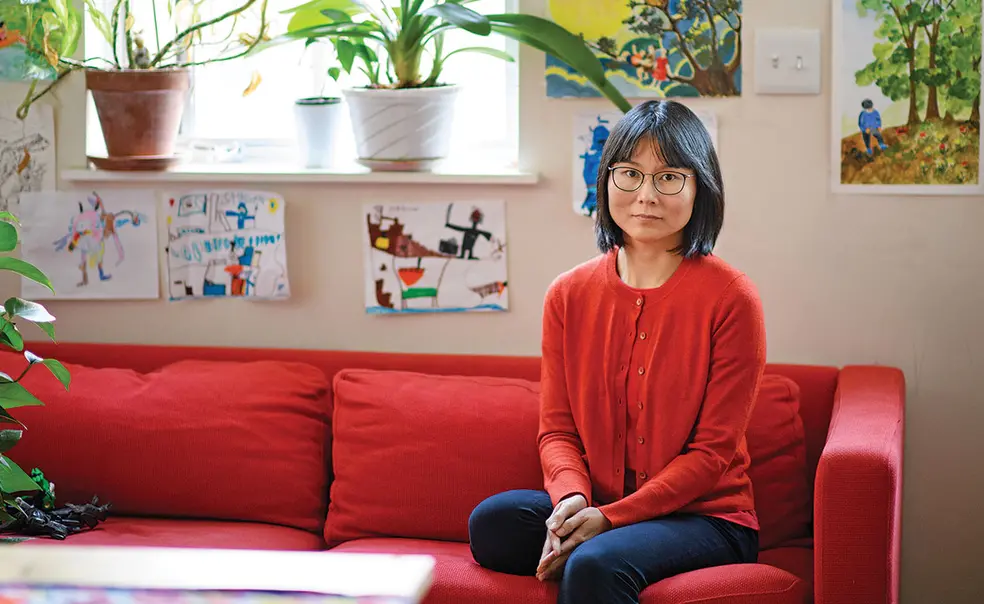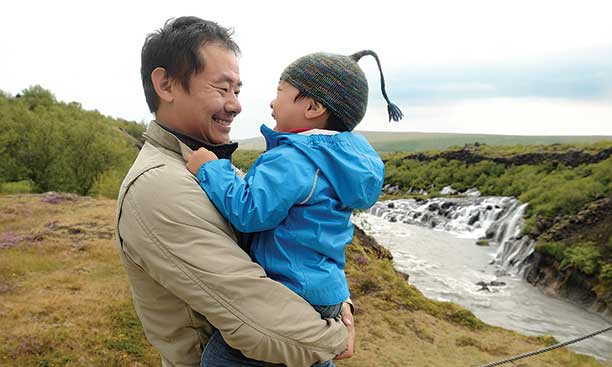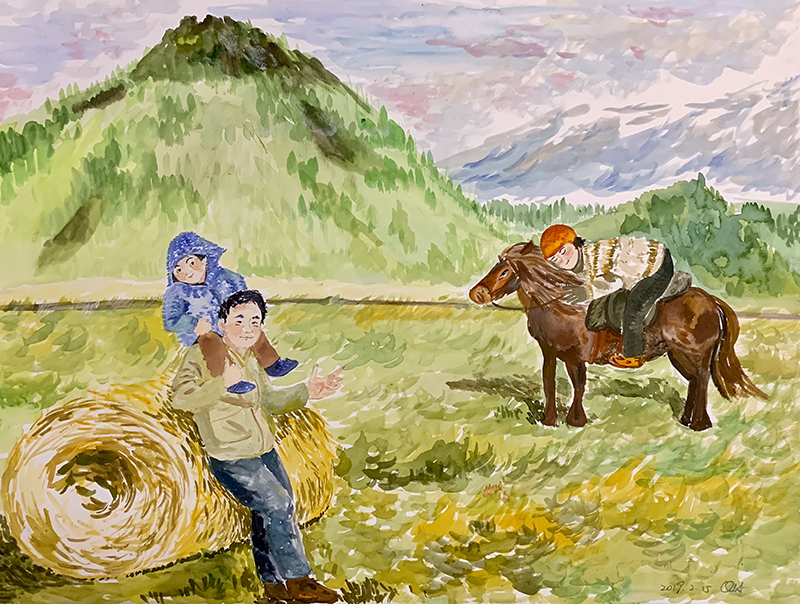A Family’s Vigil
‘I’m at the lowest point,’ says the wife of a grad student imprisoned in Iran
In a corner of Hua Qu’s apartment, under the kitchen table, is a basketball. She bought it last year for her 5-year-old son, Shaofan, to play with, but it’s remained untouched.
“I see other dads throw balls with their kids,” Qu says. But Shaofan’s father, Princeton graduate student Xiyue Wang, is in a prison in Iran, where he is serving a 10-year term after being convicted on espionage charges. “I was a quiet girl growing up, and I didn’t play with balls,” Qu says, sipping a cup of warm water in her living room on a cold January day.
She has been raising their son on her own in graduate-student housing since Wang left Princeton in April 2016 to conduct archival research in Tehran for his dissertation. He has not returned.
Qu says Wang — a naturalized U.S. citizen who was a third-year doctoral student in history — didn’t go anywhere in Tehran aside from the library, the language institute, and the archives, where he was researching documents more than a century old and unrelated to modern-day politics.
He had planned to return to Princeton that summer. Then, silence. For three weeks, Qu had no idea where he was or if he was safe. Finally, Wang called her from Tehran’s Evin Prison, crying. He had been interrogated and detained by the authorities. In early 2017 he was charged, and in April he was convicted and sentenced. Despite efforts by two presidential administrations and the University, he remained in prison as of early February.
“I would say I’m at the lowest point in the last three years,” Qu says. “This has been devastating for our family.”
When Wang started his Ph.D. at Princeton in 2013, Qu was living with their newborn baby boy in Beijing, where she worked as a lawyer. During Wang’s first year at Princeton, he returned to China to visit as often as he could. In 2014, Qu and their son moved to Princeton so the family could be together. She got a job in New York and commuted to the city, while Wang’s flexible schedule allowed him to drop off and pick up Shaofan at day care.
These days, things are different. Qu left her job in New York and now works 15 minutes away at Bristol-Myers Squibb. Shaofan has struggled with the adjustment to kindergarten — the school day is from 8:30 a.m. to 3 p.m., followed by an after-school program. By the time Qu is able to pick him up between 5:30 and 6, her son is often the only student still there.
“Shaofan has a sense of insecurity, and he’s scared that I will leave him, abandon him, or disappear,” she says. “Instead of putting my husband’s situation first, I’m now putting my son as my priority. Because if my son is not doing well, what’s the point? Why am I struggling so much, working so hard?”
During the first year of Wang’s absence, Qu stayed optimistic. The State Department assured her that the situation had been a misunderstanding and that it would be resolved soon. After a year in which news of her husband’s imprisonment was kept quiet, she started a media campaign, talking at rallies on campus, speaking to reporters with The New York Times Magazine and NPR, and calling on President Donald Trump for a resolution of Wang’s case. Trump announced in May 2018 that the United States would withdraw from the 2015 Iran nuclear agreement and later reimposed sanctions on the country.
Qu, who had been speaking weekly with the State Department, now waits for its call after months have passed with no updates. In August the United Nations working group on arbitrary detention concluded that the Iranian government had “no legal basis for the arrest and detention” of Wang.
“I feel proud of [Wang] and the fact that he’s still unbroken after three years.”
— Hua Qu
Qu says her hopes were higher after seeing the Trump administration’s success in obtaining the release of hostages from North Korea, Turkey, Egypt, and Venezuela.
On campus, the Graduate Student Government planned to hold a rally and phonathon Feb. 20 for students to contact their congressional representatives to work for Wang’s release.
“I hope that people can do anything in their own capacities to leverage their networks to find ways to advocate for his release,” Qu says. “Even though I’m not a typical American face that people might easily relate to, I think we can all agree that this is about basic human rights — this is a humanitarian issue.”
A bright spot for Qu has been the support she’s received from her friends, a mix of graduate students and parents from Shaofan’s preschool and kindergarten classes. Qu says they’re “wonderful people,” dropping off Shaofan at school, arranging play dates at their homes, and bringing soup when she was sick.
Meanwhile, Wang marked his third successive birthday in jail Dec. 31. He and Qu speak on the phone every day, but he usually calls in the morning and conversations can be rushed because it’s time to get Shaofan ready for school.
Wang, who remains a registered student at the University, spends most of his time reading — Qu is able to send him books every so often — and planning his new dissertation topic (he’s currently considering studying the Tibetan language). He dreams of Princeton often; in a recent dream, he was studying on the second floor of Firestone Library. When he woke up and realized where he was, tears formed in his eyes, Qu says.
It has been so long since she has seen her husband that Qu says it’s difficult to picture what he looks like. Wang told her that he is growing gray hair and developing wrinkles, but she tries not to think about that.
“I feel proud of him and the fact that he’s still unbroken after three years,” Qu says. “He’s never once complained that he is bored in prison. He only complains that he cannot study because it’s so noisy there. He’s really just a history nerd, thinking about his work all the time.”
Shaofan wished his father a happy birthday on the phone after going months without speaking to him. He has started mentioning his father again in conversation and says he would like a bigger family, complete with younger siblings and his father.
“When I gave Shaofan a bath recently, I put extra towels in the bathroom and he asked, ‘Are those for Daddy?’” Qu says. “And I said, ‘Maybe — when he comes back he can take a shower.’ What else can I say? I can’t say anything else.”














No responses yet